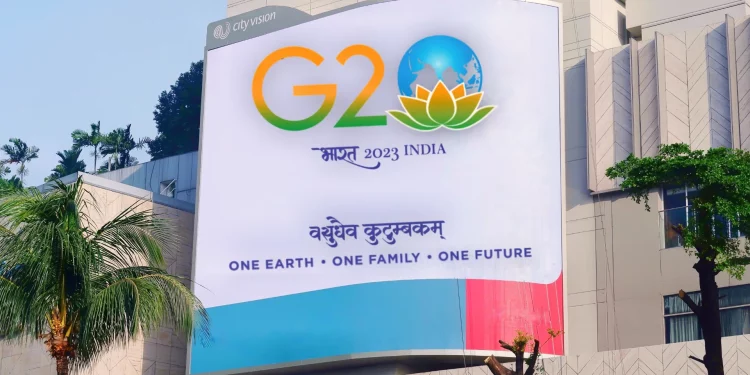The G20 nations acknowledged the importance of respecting international boundaries and refraining from territorial acquisitions by force
The G20 summit was concluded in the Indian Capital on Sunday with the world leaders addressing crucial global issues and achieving consensus on various areas. Undeterred by the deep divisions over the Ukraine conflict, the summit produced a document in unison that shows progress on important affairs. Let’s take a look at the key takeaways from the 2023 G20 summit.
Discussions on Russia-Ukraine War
The G20 nations acknowledged the importance of respecting international boundaries and refraining from territorial acquisitions by force. One significant thing to be noted is that the summit avoided direct criticism of Russia for its actions in Ukraine. This marked a subtle shift from G20’s stance in the previous year when it openly condemned Russia’s involvement in the conflict. Diplomats argue that this softer approach allowed for a more constructive dialogue while still maintaining the commitment of all nations to refrain from seizing territory by force.
The addition of African Union
In a noteworthy move to boost representation, the G20 officially admitted the African Union (AU) as a permanent member, elevating it to the same status as the European Union (EU). Previously, only South Africa was a G20 member from the African continent. This decision would grant the Global South, represented by AU, a stronger voice within the G20. It reflects the growing influence of emerging economies and developing nations, particularly those from Africa. This addition also comes after the BRICS expanded to include Iran and Saudi Arabia among other countries.
Climate Change
The G20 leaders committed to tripling global renewable energy capacity by 2030 and recognised the need to phase out relentless coal power. However, the summit stopped short of setting specific, ambitious climate goals.
The declaration lacked a clear path to revising existing policies to achieve the renewable energy target. It also emphasised the need for $4 trillion annually to fund a green energy transition but did not outline a pathway to mobilize this funding. These developments come ahead of the COP28 U.N. climate summit, where further climate action will be discussed. The group did not provide any plans to make changes to the existing policies.
Transport Corridor: India, United States, and Saudi Arabia join hands
Leaders from India, the United States, and the Kingdom of Saudi Arabia unveiled ambitious plans to establish rail and port connections between the Middle East, South Asia, and eventually Europe. This infrastructure project, described by US President Joe Biden as a “real big deal,” aims to strengthen economic ties between regions and counter China’s Belt and Road Initiative.
While details on financing and timelines remain pending, the project signifies the U.S.’s efforts to provide an alternative partnership for infrastructure development in developing countries. A proper time frame was also not provided for the project that involved laying down railway lines in the Middle East and then connecting them to India by port.
Narendra Modi’s Leadership and India’s Global Role
Indian Prime Minister Narendra Modi seized the opportunity to showcase India as a significant diplomatic and economic power during his long-year leadership of the G20. The successful conclusion of the summit, marked by the consensus document and productive discussions, bolsters India’s international standing. Modi’s leadership at the G20 has also allowed him to bolster his image domestically as he seeks a third term in office in upcoming elections.
This event underscores India’s growing influence on the global stage. Modi’s image has been etched on billboards of G20 across the capital city and in the new conference venue. To thousands of supporters, the successful result of the summit portrayed that India’s big moment was already here.


















